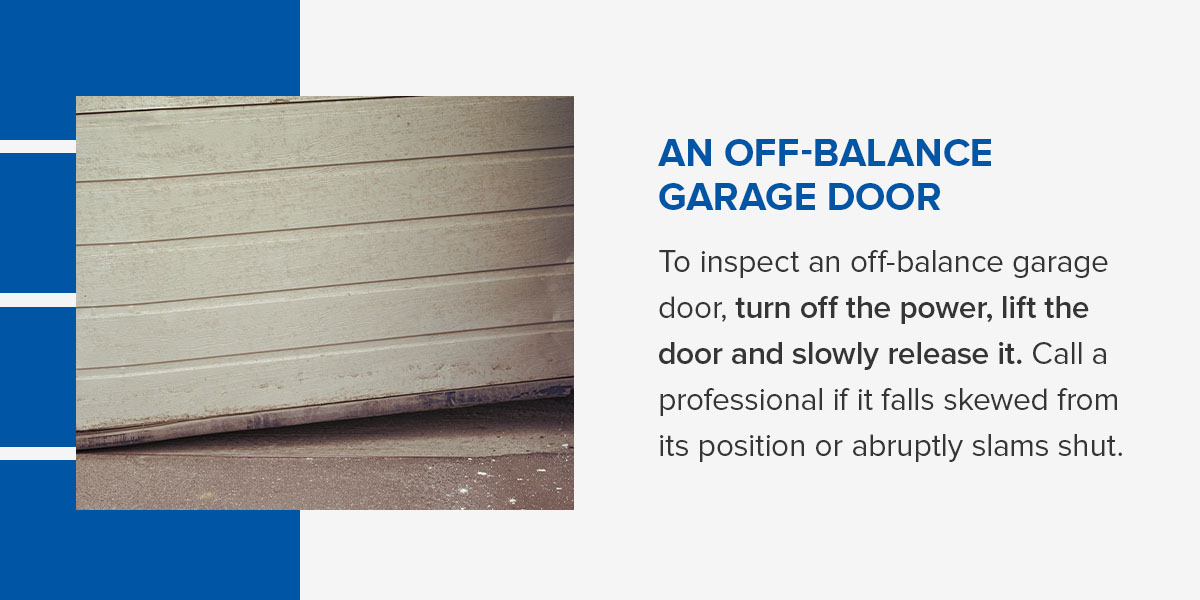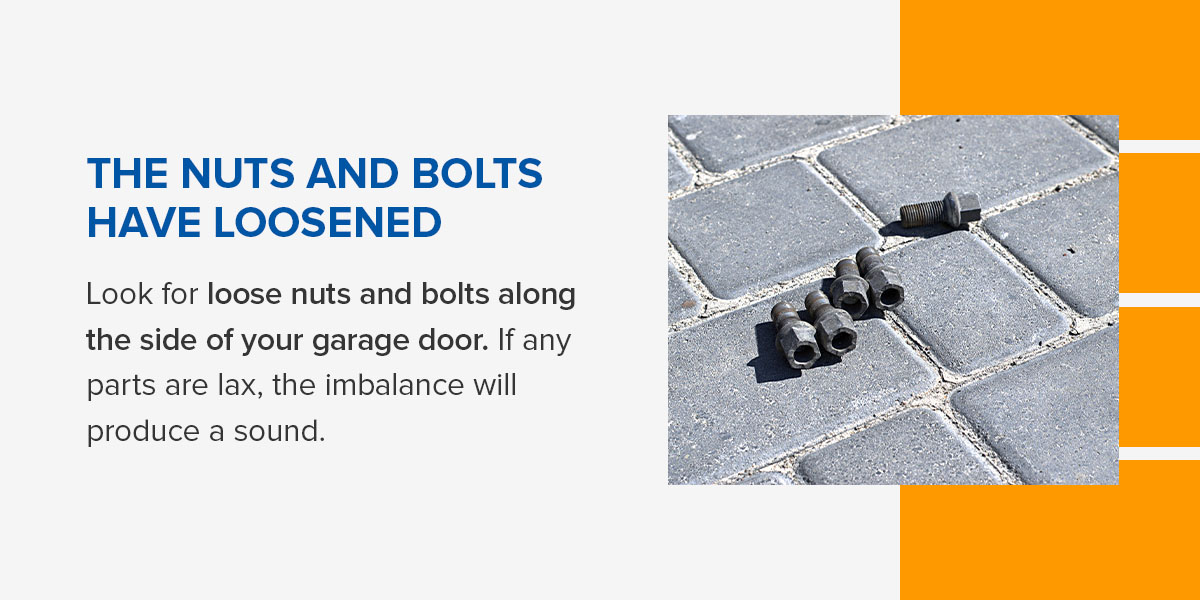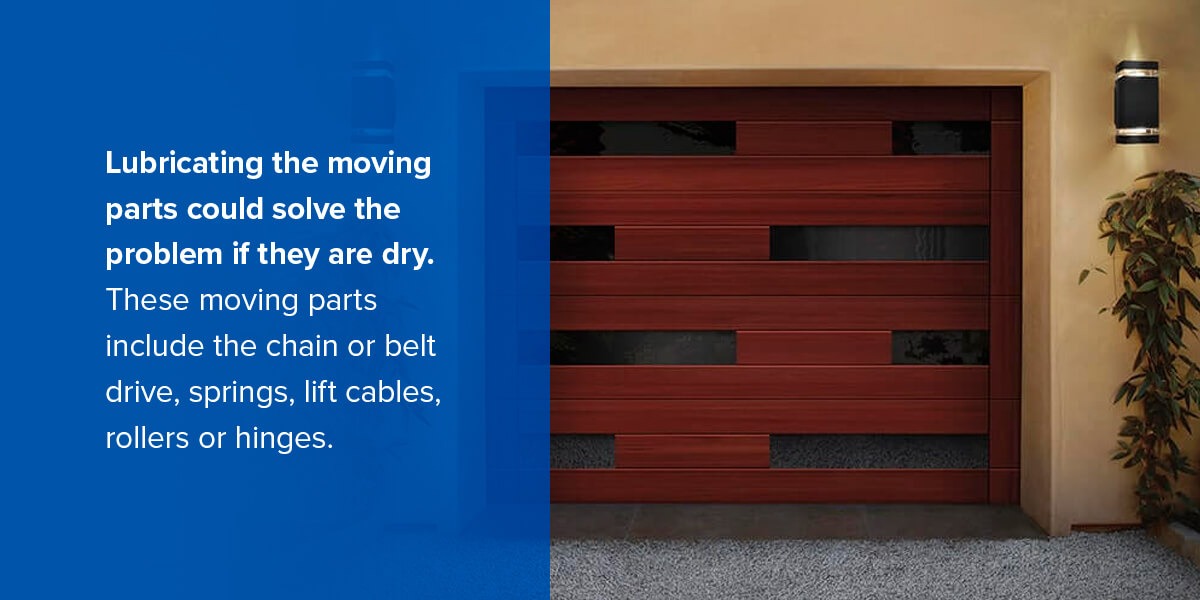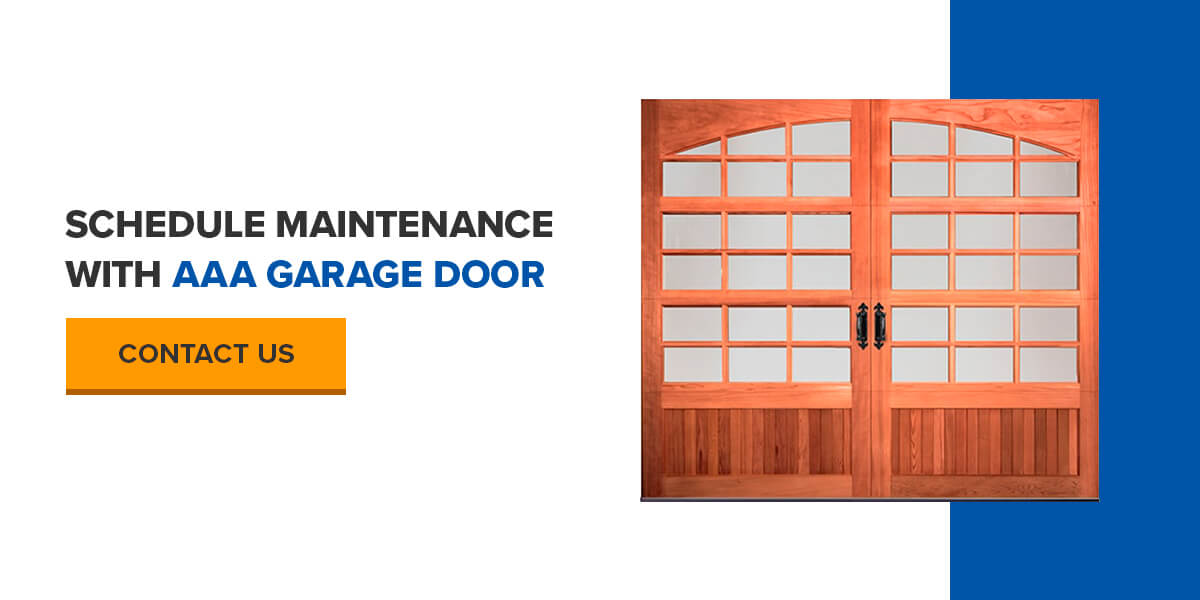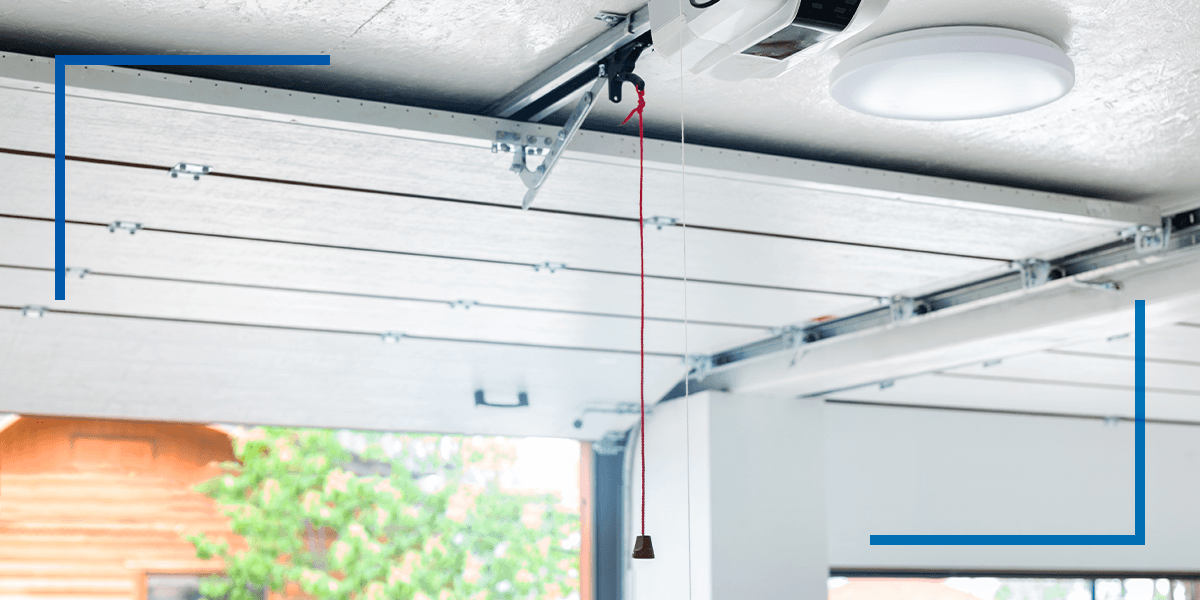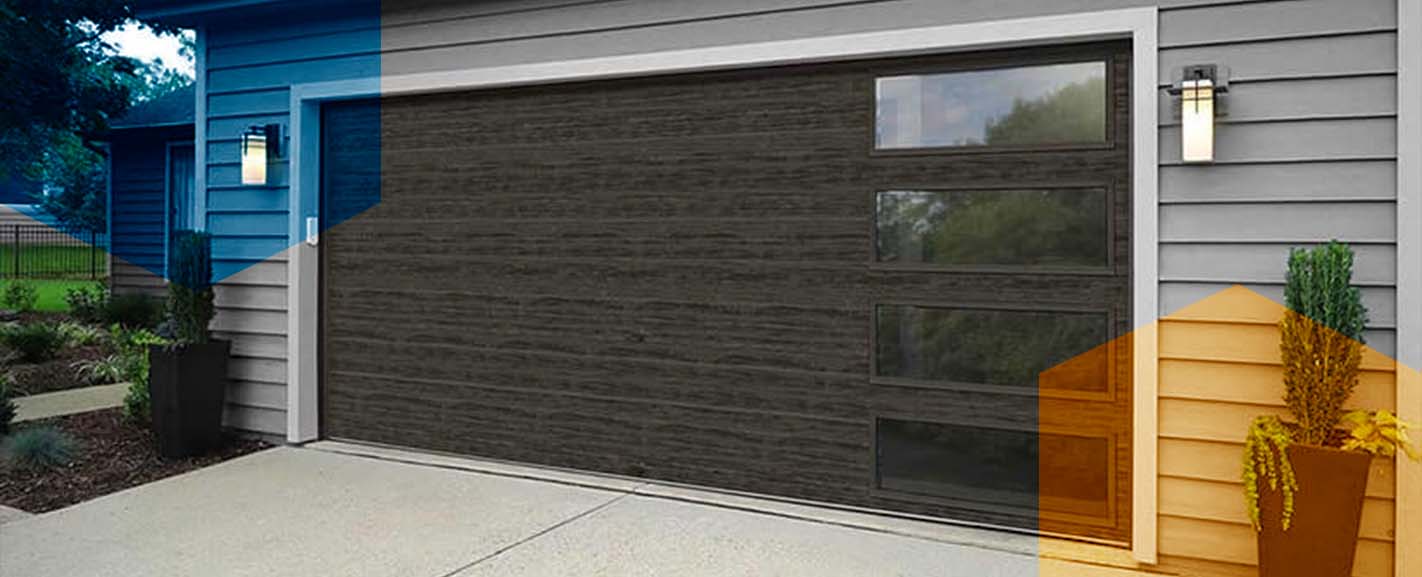
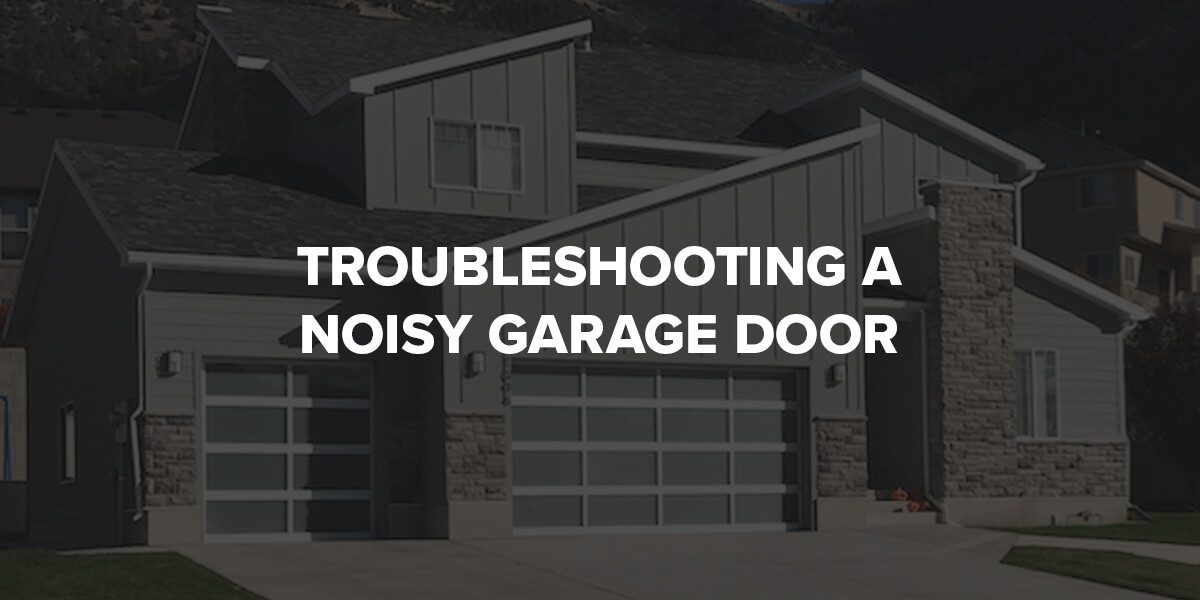
If you ask yourself your garage is so loud, then chances are, it's not normal. Loud and unusual garage door noises typically indicate an underlying issue. Problems with the door or opener cause these strange noises. That's why it's crucial to investigate a noisy garage door to determine the cause before it becomes a bigger problem.
Before You Get Started
When troubleshooting a loud garage door, take the necessary safety precautions. One is to disconnect the power to the opener, so no one can open or close the door while you work on it. You'll also want to contact a garage door professional to repair serious issues that could put you at risk of injury.
Noises That Indicate a Problem
As an overhead door ages, it's more likely to make noises. Older garage doors make noises because their worn parts must work harder. You can extend your garage door's life span by maintaining and inspecting it at least twice a year. If you notice any of these noises, you'll want to investigate and find the source:
- Squealing: Squealing sounds often indicate poorly lubricated parts.
- Squeaking: A simple way to fix a squeaky garage door is to inspect the weather stripping. If the weather strip is dry, it can cause the door to squeak when you open or close it. It can also indicate a problem with the rollers.
- Grinding: Poorly lubricated or worn-out rollers, hinges and door opener's chain or belt can all produce a grinding noise.
- Rattling: Rattling noises can signify loose nuts, bolts or a chain, poor lubrication and misalignment.
- Vibrating: Loose nuts and bolts or poorly lubricated rollers cause vibrating.
- Slapping: Slapping sounds occur when a loose chain hits your opener.
On the other hand, if your garage door makes any of these noises, contact a professional right away and do not try to fix the issue yourself:
- Popping: Popping can signify a broken torsion spring.
- Banging: When you hear a banging noise, it means a professional needs to replace or realign your door.
- Clinking: Springs and coils that rub together or a defective roller can cause clinking sounds.
- Clunking: Thumping or clunking can indicate a malfunction with the opener or a broken torsion spring.
- Straining: If your door strains upon opening and closing, your garage may need more power. The other cause of straining is a faulty motor.
- Rumbling: Coil tension or a loosened spring often causes rumbling.
- Rubbing: Tight or bent tracks can produce a rubbing sound.
- Scraping: The door could be rubbing against your home because its placement is misaligned.
WHY IS MY GARAGE DOOR MAKING NOISES?
Typical reasons your garage door may make noises are old or rusted parts and poor lubrication. Keeping your garage door components well-oiled and regularly checking them can ensure they operate silently. While a trained technician can diagnose and fix the problem, you can take steps to identify the sounds and stop your garage door from making noise.
1. OLD AGE
If your garage door is old, the rollers can start to squeak. Since your rollers work every time you open and close your garage, checking them is vital. The rollers can be susceptible to rust, wear and tear, so when you hear grinding or squealing noises, it’s time to inspect them for damage.
The rollers attach to hinges along the sides of your garage door and run vertically to open and close the door smoothly. When your rollers are rusty and damaged, they can make loud noises, indicating they need more lubrication.
Lubricate your rollers by applying the grease to the parts where the rollers meet the hinges, then grease the entire roller. If you wish to replace them, choose between steel and nylon. Steel offers excellent durability, but it cannot resist rust. Nylon is also a quieter material in garage doors.
2. AN OFF-BALANCE GARAGE DOOR
If your garage door makes a banging noise when opening, it’s off-balance. The springs above your garage door are responsible for weight stability. They may make a popping sound if your garage door is slightly unhinged or hangs to one side. The pops indicate your springs are working hard to lift the misaligned areas of your door. Your belt or chain drives can also be the culprit. Chain drives often shake when opened if not lubricated or off-balance, causing rattling or slapping noises. If you have a belt drive, it can slip in extreme temperatures. This back-and-forth slipping can cause your garage door to scrape against your house.
To inspect an off-balance garage door, turn off the power, lift the door and slowly release it. Call a professional if it falls skewed from its position or abruptly slams shut. You can also switch off the power to your door opener and open your door halfway. Your springs are weak and damaged if the door hangs slightly to one side when you do this. The torsion and extension springs should sit flush and spring back. If not, they need professional intervention, as an off-balance garage door can be dangerous.
Damaged or worn-out springs require expert replacement because the springs hold up your garage door. If these fail, your door may fall and cause damage or injury. Doing this yourself can pose too much risk, making your garage unsafe to use over the long run.
3. YOUR GARAGE DOOR OPENER NEEDS REPLACING OR REPAIR WORK
A chain- or belt-drive opener can cause a rattling noise when not adequately lubricated. While chain-drive openers tend to be louder, your garage door will be noisy if it has to work hard due to an imbalance. Regularly examining your garage door motor is essential.
When you inspect your garage door motor for loud noises, first pull the manual release to move your garage door by hand and listen for any sounds. If there are none, move on to check your garage motor. Disconnect your garage door and press the open button on your remote control or the door control panel. If you have a belt drive garage opener, check for proper tension on the belt. Conversely, chain drive models should have adequate tension on the chain. If your screw-drive opener makes a rattling sound, this may indicate rust and tension.
You can lubricate your garage doors regularly to remedy any noise. The type of motor you have will serve as a guide for how you should lubricate the drive.
- Screw-drive models: Apply an even coat of white lithium grease. Start by gently squeezing the lubricant out while providing pressure on the rail. Ensure the grease absorbs into all the grooves.
- Chain- or belt-drive openers: For these models, you will need white lithium grease for the rail and belt and spray lubrication for the chain. Lubricating the rail is essential to avoid grinding noises. Apply the grease where the trolley meets the rail. For the chain or belt, spray or paint the grease all over it for optimal results.
If you detect other issues with your motor drive or your garage door still makes a loud noise, it’s best to consult a professional. An expert can prevent accidents in opening and closing your garage door.
4. WEAR AND TEAR ON THE ROLLERS
When garage rollers struggle to spin around the shaft due to wear and tear, it’s time to replace them. Age and rust aren’t the only issues to be aware of. For instance, the rollers may begin to sound gritty and get locked in the shafts.
As you inspect your rollers, ensure they attach firmly to the shaft with no wiggle room. If you feel any gaps or unevenness, these can cause noises and are a sign to replace your rollers. Stand inside your garage and open the door. Do the rollers spin unencumbered on the shaft, opening and closing with relative ease and minimal silence? Also, check for damage like cracks, missing pieces or chunks of rubber.
To lessen any noise, lubricate your rollers every three to four months. Replace your rollers if they get locked and the lubrication doesn’t help with the grinding sound.
5. THE NUTS AND BOLTS HAVE LOOSENED
Loose nuts and bolts that hold your garage door in place and keep it working correctly can make a screeching sound when you operate your garage door. Though small and overlooked, the parts that hold your garage door’s components together are significant. The importance of these components is especially evident if the hardware runs along your garage door’s track. The track is where the smooth operation of your garage door is noticeable. If components become loose or damaged, it can influence your garage door’s balance and alignment.
Look for loose nuts and bolts along the side of your garage door. If any parts are lax, the imbalance will produce a sound. Examine your hinges and the rollers on your shafts. Check if these parts fit tightly, with no missing or damaged parts.
Use a wrench and socket to tighten the bolts and nuts and ease any racketing noise. You want to strike a balance between screwing these tight enough for durability but loose for flexibility. When tightening loose components, use a level to ensure the hinges and roller shafts are straight.
6. YOUR HINGES NEED LUBRICATION
Your garage door’s hinges serve as the muscle, keeping the rollers and shafts in place and allowing these to operate smoothly. Loose and damaged hinges can cause your garage door to squeak.
Inspect the hinges and rollers for rust or damage. When your hinges have excessive rust buildup, the roller shafts will have trouble moving from side to side. Look for loose or missing screws, bent hinges and any wear and tear. These are all factors to keep an eye on when you inspect your garage door hinges, as they will determine what you can do to fix any issues.
Repair and replace any broken hinges or missing bolts. If the hinge still looks sturdy but is missing a screw, fix this promptly. Replace the entire hinge in severe cases of damage or rust.
How to Fix Garage Door Noises
Some garage door noises stem from minor issues that you can address yourself. Here are some maintenance tips that may stop the noises:
Tighten the Nuts and Bolts
Loose or missing nuts and bolts on the door or track supports could cause your door to rattle. You can use a wrench and socket set to tighten these nuts and bolts, but be careful you don't overtighten them.
Lubricate the Moving Parts
Lubricating the moving parts could solve the problem if they are dry. These moving parts include the chain or belt drive, springs, lift cables, rollers or hinges. As long as these parts are in good condition, they may only require some lubrication. However, you must contact a repair professional if they are in poor condition. Only lubricate the metal parts, not the nylon or plastic ones.
Create Buffers With Rubber Pieces
You can use rubber buffers on your door and opener to reduce the noise. To install the rubber pieces you:
- Unplug the motor to your door opener.
- Rest your door on a ladder.
- Remove the bolts that hold your tracks to your garage door.
- Slide a rubber piece between the bolts and the door.
- Replace and tighten the bolts.
The rubber will help absorb vibrations that can cause the support frame to shake. Test your opener and garage door when done to confirm they work correctly.
Readjust the Locks
Inspect your locking bars to ensure they're properly aligned. If your lock bar makes noises, doesn't catch or hits the track, it's misaligned. You can try to realign the lock bar by:
- Finding the leader brackets or the L-shaped plates with screws.
- Removing the screws and tap your guide up or down.
- Tightening the screws.
- Repeating on the other side.
Replace the Weather Strip
The insulation strip under your door could be damaged, missing or worn out. If the weather strip is the problem, your garage's air will be humid and cold, and the door may bang when it closes. You can hire a professional to replace your weather strip and save time, or you can purchase a weather strip from a garage dealer and replace it yourself.
Hire a Professional to Repair the Springs
If your overhead door hits the floor too hard, it causes noise. Your door can hit the floor too hard if your springs need maintenance. Since working on the springs is complicated and dangerous, contact a professional to repair or replace them.
Hire a Professional to Repair the Opener
Sometimes, the noise can come from your opener. A noise close to your garage's roof or from the opener requires professional repair services. Addressing issues with your opener is crucial so your door continues to open and close safely and correctly.
HOW TO AVOID GARAGE DOOR NOISES
Though wear and tear, damage and extreme weather conditions are unavoidable, you can take these steps to silence a loud garage door.
- Be cautious with your garage door: Accidents happen, but try to be careful around your garage door, especially when parking your car and backing out.
- Look after the rollers and replace them if necessary: Treat your rollers carefully, as they allow your door to open and close smoothly. Watch how they move alongside the tracks and call for repairs if you notice any bumps.
- Lubricate the springs regularly: Your garage door’s springs are one of its most crucial components. They keep your garage door balanced and in place. Lubricate them several times a year, and call a professional for a thorough inspection if you’re in any doubt.
- Inspect your garage door opener: When you notice sounds coming from your garage door or opener, review your owner’s manual. It should include a section on how to eliminate noises. For any other issues or more complicated maintenance, get expert help.
- Tighten loose bolts: Always keep an eye out for any loose nuts and bolts and tighten them immediately. Have the necessary tools for this job on hand.
- Lessen vibrations: You can sometimes trace noises from your garage door opener to your punch angle gauges. They should be secure without being too restricting, as you’ll want to keep some movement for when your garage door opens and closes. If there’s excessive wiggling when the door opens and closes, get an additional diagonal support punch angle for added fit. Install rubber disks to absorb vibrations.
- Check your weatherstripping: Cold and humid air in your garage could cause its door to bang when it closes. The humidity may also impact the susceptible components on your garage door. You can replace worn-out weatherstripping or purchase a good-quality strip if you don’t have one.
- Realign the locks: If the locks on your garage door won’t catch or make noises and bangs against the track, they’re misaligned. To fix this issue, unscrew the L-shaped plates, realign them with the holes and tighten the screws again.
- Regularly maintain your garage door: Routinely check your entire garage door. Look for loose parts, rust, damage, bending and foreign objects. Replace and repair any parts as needed and seek professional help when you have a damaged garage door motor or screws.
Schedule Maintenance With AAA Garage Door
Routine maintenance inspections are the best way to address minor issues before they become problems. It also ensures your overhead door lasts as long as possible. For over 25 years, AAA Garage Door's professionals have provided high-quality, prompt and reliable garage door repair and maintenance services in the greater Omaha area.
Our caring, highly-skilled professionals perform all of our garage door repair and maintenance services. We offer fair pricing models and easy scheduling. When you choose AAA Garage Door — the most reliable and trustworthy garage door repair specialists in Omaha — you receive quality services performed with extreme care and precision to ensure your garage door's long-term safety, reliability and performance.
